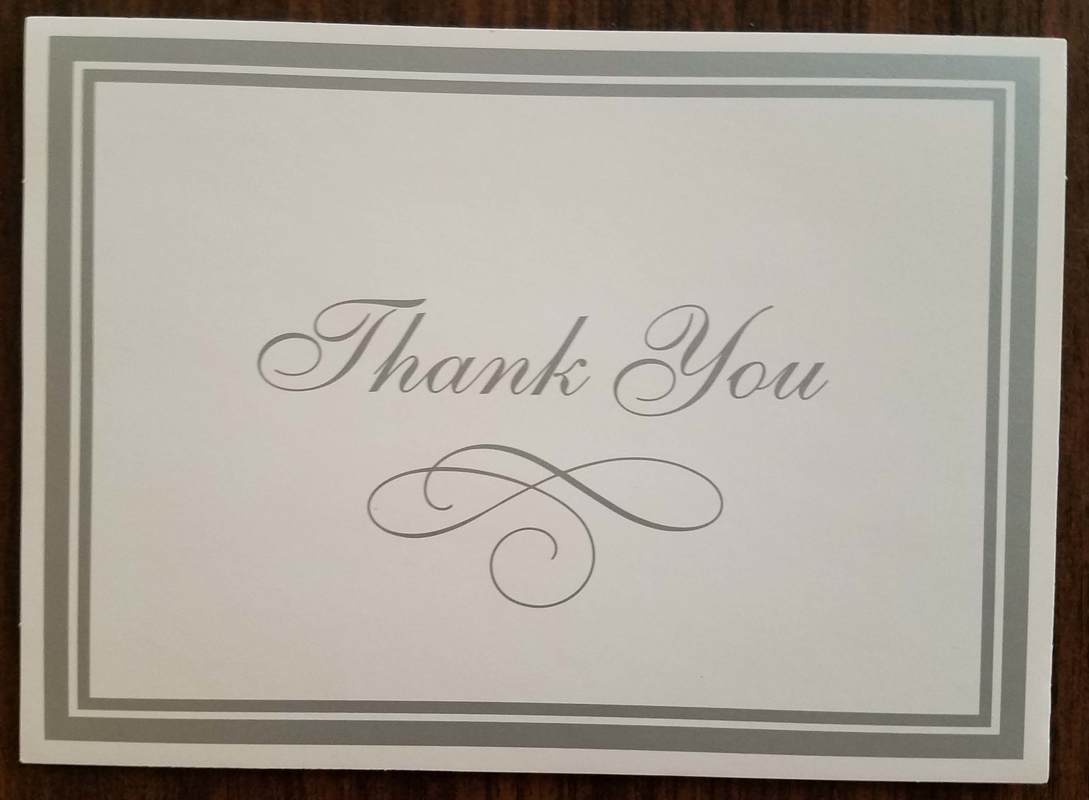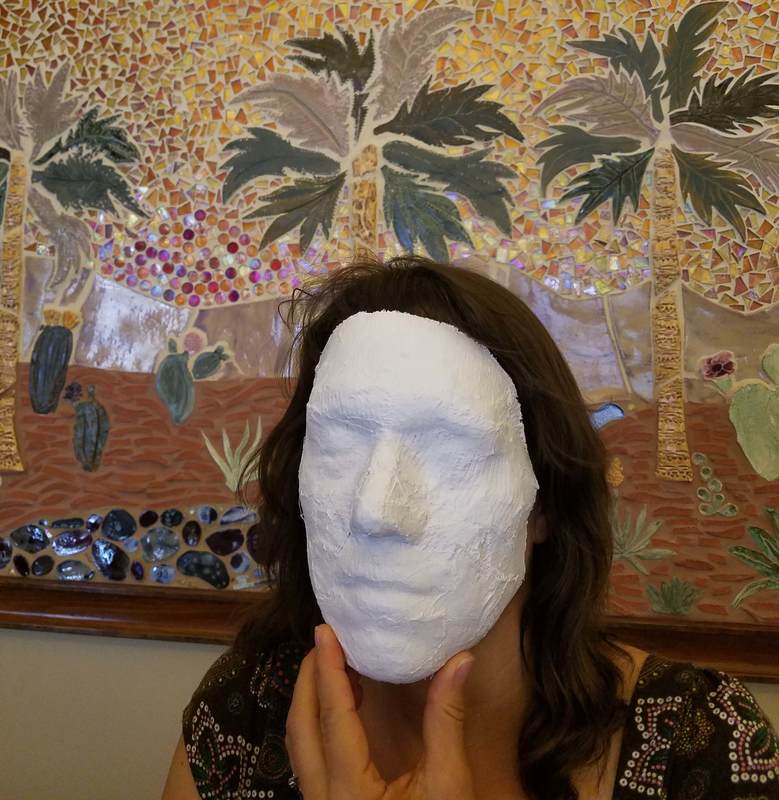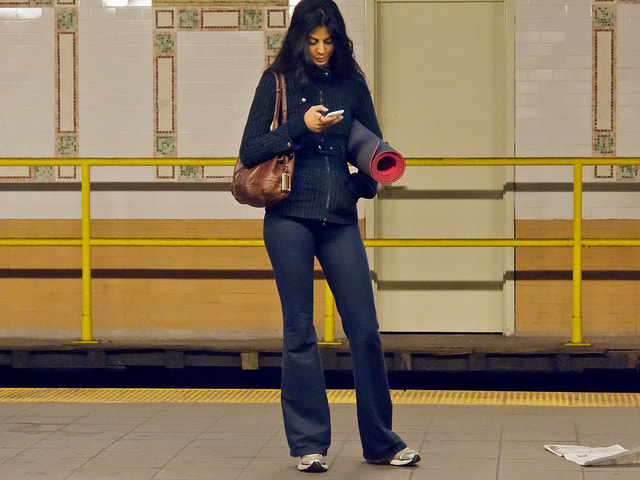|
As if we didn’t already know this by it how it makes us feel when we receive an unexpected thank-you, a new University of Chicago study published in the journal Psychological Science confirms it: A little thank-you does indeed have positive consequences. The authors of the study set out to discover if there was any truth behind thanks givers’ belief that a thank-you isn’t all that important. They found the opposite: A thank-you benefits both the giver and the receiver. Think about the last time you received a genuine note of thanks. Did it make you sad? You may have shed tears of joy at the words you read, but more than likely, the sentiment put a smile on your face. Now put yourself on the giving end. When’s the last time you wrote a message of appreciation for someone? And how did that make you feel? In all honesty, you probably did it out of a genuine heart, not to try to produce a certain result. And therein lies the key to a thank-you that goes the distance: It has to be genuine. Two Minutes to Spare The funny thing about giving thanks is that it doesn’t take much time to do, but it can leave a lasting impact. Just by taking two minutes — sometimes not even that long — to jot down a note of gratitude can make a world of difference for the receiver. Maybe that person is going through a difficult time and could really use the encouragement. Maybe he or she is second-guessing a recently made important decision. We don’t always know what’s going on in one’s psyche when we set out to deliver a message of this potential magnitude, but we don’t need to. If we’ll make a point to take advantage of the opportunities we have to thank those around us, this world will be a much better place. You don’t even have to know the person to be thankful for the part they’ve played in your life. It all stems from the heart. A co-worker of mine has been making a difference in her sphere of influence just by being aware of her surroundings and noticing when someone can use a pick-me-up. It’s that simple. We have a platform at my workplace called Recognize where we can publicly send a note of praise to a co-worker. In that channel, genuine thanks may be more unattainable as it can appear we’re trying to gain recognition for ourselves by making the note public. But more often than not, if we’re truly thankful to someone for some reason, why wouldn’t we want to make that public and let others chime in? That extra boost may be just what the recipient needs.
2 Comments
“The gas is on the right!” I yelled at the driver who had merged into my lane in front of me, not at high enough speed to enter the freeway. She couldn’t hear me, nor did she have any idea I was shouting at her. My blood boiled. I muttered under my breath. As I jetted past her and my heart slowly returned to its normal rhythm, I questioned if I would have reacted the same way if I had met the woman under different circumstances — such as in a grocery store, with shopping carts instead of cars. I had to admit I wouldn’t have yelled to her face if she had cut me off with her grocery cart. But I had no problem giving her a piece of my mind when hiding behind the protection of my vehicle. We often apply that same hiding-behind-protection mentality to our social media presence, saying things there we wouldn’t say if the person were standing in front of us. Something about the shield of our profile makes us feel as if we can say anything that pops into our heads, regardless of how it might affect the recipient(s). Have you ever been on the receiving end of something like that? I have, and it wasn’t fun. Just as in my freeway encounter, my heart started pounding as adrenaline flooded my veins. But this time, I couldn’t think of anything else. The offense consumed my thoughts. The words in black and white had pierced me deeply, and I wanted to revert to before I had seen them. Eventually, the social media offender apologized, and our friendship was restored. But that’s not always the case. It’s easy to become careless in our treatment of others when we forget real people are on the receiving end of our outbursts. We have to remember tone doesn’t convey in written settings — or in driving with windows up settings, either. You may mean something in the nicest way, but if the person on the receiving end is having a bad day, your message could be completely twisted. Maybe it’s time we stop hiding behind our masks and admit we’re human, that we do feel hurt. And it would probably be a good idea for us to envision the recipient of our communication standing or sitting directly in front of us. It might change our words, tone, and actions. That’s what I’m going to work on. Are you with me? You might also like:
Perception Is Reality Gut Reactions You Can Run, but You Can't Hide People at Heart Photo: Ed Yourdon My midday walk during my lunch break from work started like normal. Because I’ve walked the same course for three years, with a few alterations here and there depending on the day, I’ve added reading into that time. I know, it’s not the best idea to have my head down reading my Kindle while walking along a road. I have to guard against getting so involved in the story that I fail to hear or see the vehicles around me. I looked up from my book on this particular day and noticed a woman wearing a hijab head covering about a block away, heading my direction. I went back to the novel, mindful of her, and determined to stop reading as we met so I could acknowledge her. As I passed a bus stop and we drew closer to each other, the gray clouds overhead started gently dropping their contents, adding to the humidity in the air. I looked the woman in the eye and said hi. She beamed a bright smile and returned the hi. And then she asked if she could use my phone to call her husband. I hesitated. A phone is a very personal item these days. But I also tried to put myself in her shoes. She had to be sweating under all of that clothing, and she had to humble herself to ask me, knowing I could say no. I didn’t believe she wanted to harm me in any way. What if she had just missed the bus and wasn’t going to be able to meet her husband like they had planned? The Right Place at the Right Time The story of the good Samaritan came to mind. When he saw another person in need, instead of avoiding the person because of a culture clash, he reached out and met the need. Maybe I was in this place at this time for this very reason. Maybe someone else wouldn’t have helped the woman. I pulled my phone out of my pocket, and she rattled off the number for me to punch in. That alone gave me comfort. It sent a clear message she had no intention of touching anything on my phone. I entered the numbers and handed the device to her, standing aside. As she spoke in a different language to the recipient on the other end, possible scenarios played through my head. She could simply talk to her husband and return the phone. She could take the phone and run. I could run after her. She could throw the phone and damage it. I decided even if she hurt or stole my phone, I’d be OK. It wouldn’t be the end of the world. After the woman ended her call, she graciously handed the phone back to me, thanked me with that same big smile, and went on her way. And that was it. I don’t know who received more of a blessing from that encounter: her or me. Her smile brightened my day. I hope my reluctant generosity brightened hers. I’m thankful I was in the right place at the right time to be able to help her. But I’m more grateful for what I learned through our confrontation: that sometimes it’s good just to trust people and give them the benefit of the doubt. And I always reap benefits when I’m generous, regardless of the other person’s motives. Photo: Jason Edwards Wait, what did I say? Was that out loud? Yep, I did it again. Said some things I shouldn’t have. Didn’t handle the situation as best as I could have. Now I had to do damage control to clean up the mess I had made. I don’t always stop to think how my words will affect others. Do you? I try to. But, like most of us, I determine that end result based on my intent, not on my accompanying actions — forgetting the communication I provide is a packaged deal. When I find I do my worst is when I encounter a situation I hadn’t prepared for mentally, as was the case this time. Having gotten off work early, I had envisioned going home, having the house to myself, and relaxing for an hour or so. Only to find that one of my children, whom I thought would be at work, was home with a friend. I hadn’t expected that. It turned my world upside down. Threw off my groove. Hindsight is always 20-20. I know now what I should have done, how I should have handled the situation, and how I wish I had. I also know what I actually did and how my carelessness could have affected my relationships with those two people. I had to do damage control. And yes, that meant apologizing for my wrongdoing, saying those two little words I’ve grown better at saying over the years. I guess that’s because I’ve finally given myself grace. I no longer expect my words and actions to be perfect. I know I make mistakes. And I like to acknowledge them, make amends, and move on. I didn’t care if the other parties had apologies or not. It wasn’t about that. I knew that what I had done was wrong, and I wanted to make it right. And fast. So that’s what I set out to do. This situation reminded me how far I’ve come in that I didn’t completely blow up at the individuals like, unfortunately, I’ve done in the past. I also was quick to see my wrongdoing and make things right. But it showed me that I still have work to do to get to a place where I won’t need to perform damage control. And one of the best ways to avoid that is not to react to emotions. Because when emotions are high, wisdom is low. Thankfully, I’m still a work in progress. Photo: Sparklehausen We’re halfway through 2018. It’s a great time to reevaluate the goals you set for the year. Have you made progress? Do you need to make some tweaks? Did you already accomplish some of the things you set out to do? Looking back over the list I wrote down at the end of last year, I’ve definitely made progress in some areas and have work to do in others. It gives me a sense of satisfaction to know I’m on track to complete some of the goals I set out to reach. But what about the ones where I’m lacking? Should I just give up on those goals altogether? Although that may be tempting, I don’t think that’s the answer. Instead, I’ll revise those goals to make them more attainable by the end of the year. I originally wrote them down because they were important to me and gave me some things to shoot for. I don’t think I should give up on them. I still have work to do. For example, I wanted to create a monthly newsletter. It started off all right. I succeeded the first two months. But then life happened and I got off track, missing a month. So I combined two months’ worth into one. And that happened a second time. As I revise my goals, I need to decide if I want to continue to do a bimonthly newsletter or shoot for a monthly one. My plan is for the latter. The beginning of the year and halfway through are not the only times you can set goals. You can do that anytime. It’s never too late. Is there something new you’d like to start? Go for it! But remember to check on your progress in about six months. And don’t be too hard on yourself if you don’t succeed at first. Just make some revisions and keep striving to do better. |
Lana GatesChristian, wife, mother of 5, breast cancer survivor, marathon finisher, writer and editor, author of "Help! I'm a Science Project" Archives
November 2018
Categories |





 RSS Feed
RSS Feed